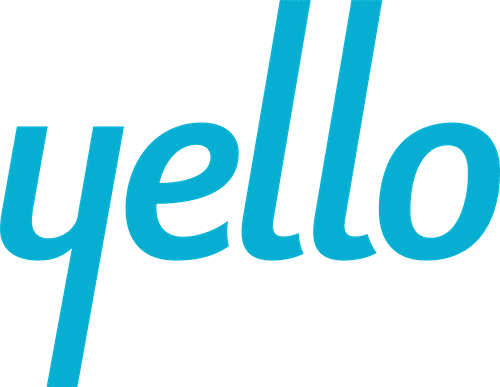In this uncertain time, businesses are rethinking their higher education recruiting strategies to keep pace with change. Amid the COVID-19 outbreak, governments, workers and employers alike are adapting how they manage the smallest tasks to the most complex. The pandemic has threatened lives and economies: putting business leaders, students and universities in a unique position.
For many college students, the future may seem uncertain. Graduation may be one of many events cancelled due to the pandemic. Campus hiring events, along with the opportunity to connect with potential employers, are off the table. Some internships are being shortened or postponed. Unemployment rates are rising. These shifts in the labor market may cause recent college graduates concern.
Amidst these changes, many companies are facing difficult decisions about budget, personnel, and business strategy. And while reducing your organization’s campus recruiting function may seem like a natural move, experts suggest it could be a deadly one.
Here’s how to get creative, maintain relationships with job seekers, and build a campus recruiting strategy that can withstand any business cycle:
Why campus hiring is still important during a recession
In an economic downturn, many companies are faced with difficult decisions: where to scale back, how to make budget cuts, and in especially challenging circumstances, how to lay off employees. And with college campuses shutting down, internship programs going virtual, and early talent hiring slowing in many industries, it can be tempting to think about eliminating your organization’s campus recruiting efforts.
But if the dot-com boom and the 2008-2009 Great Recession taught us anything, it’s that maintaining a strong campus recruitment program in rain or shine is paramount to company success.
Rebuilding a successful campus recruiting team post-recession can take months, if not years — and by the time you have a team in place, the competition will have already scooped up top talent and will be on their way to a full recovery. And a recession doesn’t mean young job seekers are going anywhere. Even if you can’t offer them a job right now, maintaining strong relationships with students will be paramount to your success when you can start hiring again.
How to adjust your campus recruiting strategy during a recession
They say desperate times call for desperate measures, but there’s no need to panic quite yet. Companies that can adapt to the changing job market will be most successful in maintaining a strong campus recruitment program, and many leading brands are already beginning to rethink their hiring processes.
Expanding beyond the same old methods and looking for ways to be creative is key to keeping pace with staffing needs during the downturn and its after-effects.
It may be time to reexamine your recruitment operations function to improve efficiency and cut costs. This could also be a good time to review employer brand and recruitment marketing materials to better reflect the current circumstances.
Here are five steps your organization can take during a recession to maintain a strong campus recruiting strategy:
1. Turn to virtual campus recruitment
The majority of businesses are turning to virtual recruiting methods in the midst of the pandemic. For campus recruiters, online tools will be a lifeline to maintain hiring momentum. Whether you’re well-versed in recruitment technology or just testing the waters, the time to get up to speed is now.
Campus recruiters know the war on talent cannot be won without cutting-edge technology. For Gen Z, organizations that don’t leverage up-to-date tech will be low on a job seeker’s priority list. Tools like video interviewing software and interview scheduling platforms will help speed up the hiring process while impressing job seekers along the way.
For recruitment professionals who have been waiting to try online tools, the time is now to convince leadership that recruitment technology is a necessary investment.
2. Focus on employer brand more than ever
Communicating with job seekers in this economy is a challenge, and should be approached carefully. Many recent graduates are concerned about increasing unemployment rates, and frequent hiring freezes and layoffs are cause for uncertainty. Top employers know that leading with empathy, maintaining transparency, and providing job seekers with as much information and value as possible is crucial.
As economic downturns loom, make sure your employer brand reflects the current reality. While no business is 100% recession-proof, communicate short-term and long-term confidence in your organization with potential new hires. If your company’s hiring has slowed, use this time to revisit and improve recruitment marketing materials. Do your job descriptions appeal to Gen Z applicants (and do they include language about changes in hiring procedures during COVID)? Could your social media recruiting strategy use a refresh? Is it time to address your third-party employer reviews?
Stay relevant and continue to connect with entry-level talent by making sure your brand messaging is up to par across all channels. Even if you’re not hiring now, they’ll remember you when you do have open positions.
3. Know where your target audience is
For some organizations, casting a wide net is necessary to recruit at scale. For others, targeting recruitment efforts to specific audiences offers the best ROI. Now is a good time to check in with students you’ve already met, and reconnect with career services professionals at top universities who can help direct your messaging to the right audience.
Look to your talent communities if you’re focused on specialized roles. Focus your messages on specific areas of study, year in school or other areas of interest. Rather than route these candidates to your website and social media pages for more information, direct them to specific job openings on your career page that best fit their interests and skills.
For less specific recruitment needs (or if you’re not hiring right now), use broader tactics. Send frequent emails to a wider group with COVID-19 hiring updates, links to your career page and insights about your company culture. For mass recruitment efforts, it may be a numbers game, but don’t let that deter you. Message strongly and frequently to boost your odds of maintaining relationships with job seekers.
4. Lean on university relationships
Everyone is adjusting to life in the time of coronavirus — career services departments included. These professionals are finding new ways to address the current labor market and guide the student job search during an economic recession. They may have already come up with creative ways to communicate with job seekers, and may be willing to share best practices.
Now is the time to build and reinforce your company’s relationships with professors and career services professionals across the country. These alliances will strengthen your recruitment efforts, offer a better support system for students as they look for jobs, and will benefit your campus recruitment strategy in the long-term.
Another area to consider are online degree candidates and universities. These schools are expanding and have been positioned to meet changing needs. Connecting with career professionals in this category could increase recruitment success factors exponentially. The more you adapt to change, the lesser its effects may be on recruitment initiatives.
5. Plan for your return to campus
COVID-19’s impact has prompted fundamental changes in early talent hiring processes, and companies around the world are scrambling to implement all-virtual recruiting models as a stopgap. For some, this rapid shift may beg the question: will we ever return to campus? Is an all-virtual model just as effective, and do career fairs even produce high-quality candidates? Are all of the long nights and expensive work trips worth it?
Today’s leading brands have proven that 100% remote recruiting models are helpful now — but aren’t a long-term solution. A combination of on- and off-campus initiatives is the key to hiring success — and career fairs aren’t going anywhere anytime soon.
The return to campus will inevitably come, and your competitors will be there to scoop up top talent. Will you?
Arm yourself with the data you need to make smarter decisions about your campus recruiting strategy, discover which initiatives are most impactful, and learn how your company stacks up with others in your industry. We’ll swing back from the recession eventually, and these insights will help your recruiting team prepare for that day.
Campus recruitment during an economic downturn is all about being proactive. Cultivating and strengthening relationships with candidates and campus contacts, revisiting outdated hiring tactics, and maintaining a strong employer brand are key to a strong recovery post-recession.



